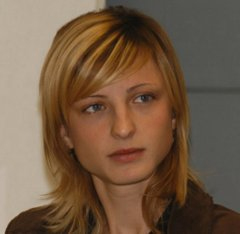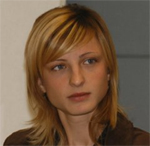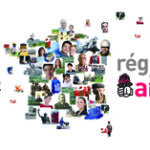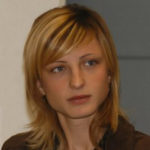
Nice Premium: What is your analysis of the economic and social situation in the PACA region?
Anne-Julie Clary: The PACA Region has a unique economic reality: we have little industry and 90% of our businesses are small and medium-sized; hence the creation by the region of 29 innovation and solidarity development networks to allow companies to work better together in their sectors: nautical, perfumery, wood, business tourism, personal services, etc.
The region is primarily in a worrying social context with high unemployment and poverty rates and a significant proportion of people who have no qualification. Here too, the region is taking action by applying a “training, qualification, employment” principle for 30,000 young people leaving the school system each year. To face the crisis, the region has strengthened its “train rather than lay off” scheme by helping to train employees of struggling companies.
Unfortunately, since Nicolas Sarkozy’s arrival, economic and social difficulties are worsening, and our region is not spared. Yes, France is changing, but for the worse.
N.P.: Do you think national policy will influence voters’ votes in the regional elections?
A-J.C: Voters must vote for themselves: if they believe their situation has deteriorated due to government policy: tax gifts to the richest with the tax shield, decline in public services (education, health with franchises, employment center, postal services…), rising unemployment, questioning of pensions, etc., they can express it in this election. But Michel Vauzelle’s list also gives them the opportunity to vote for another societal project based on equality, public services, and solidarity between territories and generations.
N.P.: What is your assessment of the left’s record in PACA?
A-J.C: Michel Vauzelle has shown that the Provence Alpes Côte d’Azur region can be economically dynamic, creating 33,000 jobs, creating regional hubs grouping 3,000 companies, offering 80,000 training actions per year, supporting organic agriculture… but also that the region can be supportive: with young people by funding mobility grants for students, paying for high school textbooks and the first equipment for apprentices; with the elderly; with people with reduced mobility by adapting beaches…
We have also anticipated changes. We are now the first solar region. All our high schools will be equipped with photovoltaics. We created the first regional institute of training in environment and sustainable development. This record prepares us for the future.
N.P.: What do you consider to be the positives and negatives of your program?
A-J.C: Our project proposes to resist the poor choices of the government and the rise of unemployment. Ten thousand jobs a year will be created. We want to better protect young people with an autonomy contract that includes free transportation, health aid, and discounts on access to sports and culture. We will continue to invent a new society, that of sustainable development: sustainable economy, sustainable employment, local and reasonable agriculture, development of transport, anti-carbon premium…
A-J.C: On the negative side, I would say that government directions are not making our work any easier. Under the pretext of administrative simplification, the territorial reform endangers the region’s support for culture and sport. In fact, the UMP candidate’s program seems to already accept this unfair decision by eliminating the support that regions provide to associations and aided jobs.
N.P.: What result do you hope for in the regionals in the Alpes-Maritimes?
A-J.C: As high as possible! There is no inevitability in the left not winning in this department. On the contrary, more than elsewhere, we must resist. In the Alpes-Maritimes, the poverty and unemployment rates are higher than in other departments of the region. That’s how strong our needs are!
Michel Vauzelle carries a project of gathering. He is the only one who can unite the entire left and republicans in this election, and afterwards, he will be the President of all the Azuréens. Not like Nicolas Sarkozy, who is supposed to be the President of all French people but behaves like the President of his party by getting involved in the regional campaign. This attitude tells us a lot about his vision of the Republic.
N.P.: What are, in your opinion, the three most important and priority points of your list’s program?
A-J.C: The primary priority is employment and training. We want to accelerate 10,000 jobs per year and allow 30,000 young people to access a qualification. We will open three new institutes in addition to the one on the environment: personal aid professions, construction trades, and live entertainment and audiovisual professions.
The other priorities are linked to public services, the establishment of health centers, transport with fares for all: one euro for home-work trips, free for our young audience, and a strong investment in the development of lines.
Youth is a priority audience. With the autonomy contract, we help young people move better, take care of themselves better, live better, study better, practice sports and culture better, but we also help their families financially.
N.P.: How will you meet voters’ expectations?
A-J.C: The Vauzelle method is consultation and action. We have equipped ourselves with participatory democracy tools such as the TER user line committees, high school steering committees, territorial training and employment committees, regional school catering forums, water, etc. We will amplify this approach so that everyone who wants to participate in regional action can do so, and not just at election time.
N.P.: Why do you think the French and Azuréens are not interested in the regionals?
A-J.C: Regions are not widely covered by the media and therefore little known. In France, they are particularly poorly recognized since the State leaves them little financial means. Yet, in other European countries, regions are often the reference level, like the German Länder, Catalonia or Andalusia in Spain, or Piedmont in Italy…
The Provence-Alpes-Côte d’Azur region is the third region of France, we have geographical riches and exceptional cultural diversity that strengthen our territory. Michel Vauzelle proposes to the Provençal and Alp Azuréens to protect and defend this common land to which he is deeply attached.
At the time of the global crisis, this regional election is an opportunity for the French to show that they are committed to local politics, public services on territories, and reducing geographical, economic, and social inequalities.
The more significant the participation, the more regions will be essential tomorrow and will be able to defend us better.




